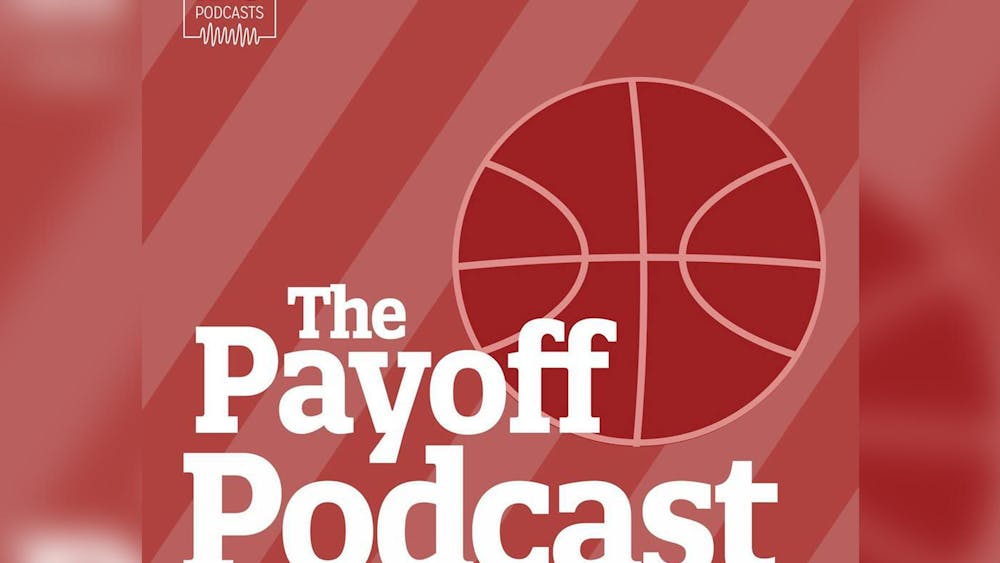Junior Derrick English is angry. He's angry voters in his home state of North Dakota overwhelmingly passed an amendment to their state constitution Nov. 2 banning both same-sex marriage and any legal recognition of same-sex relationships, such as civil unions. \n"Why should I feel patriotic?" English said. "If they want to label me as a second-class citizen why should I wave my American flag?" \nNorth Dakota and English aren't alone. North Dakota was just one of 11 states to pass bans on same sex marriage on Election Day, leaving many gay Americans — at IU and elsewhere — feeling alienated from their home states and even their country. \n"We felt betrayed and we felt empty," said Eric Neville, a freshman from Mansfield, Ohio.\nAn IU alumnus living in Louisville, Kentucky, Bryan Bear said he pays taxes, gives money to local arts organizations and the United Way, and volunteers his time to help teach kids how to read. He said the passage of Kentucky's amendment made him feel his contributions to his community are not wanted or valued.\n"My first instinct is if you don't want us, fine," Bear said. "I'll take my talents somewhere else." \nWhile amendments banning same-sex marriage passed in every state where they were on the ballot, including Kerry states Oregon and Michigan, the divide over same-sex marriage mirrors the nation's larger political divide. \nRural, Southern and Midwestern voters tended to be more inclined to support amendments than urban and coastal voters. According to Associated Press exit polls, 61 percent of voters who live in Oregon's large cities voted against amending the state's constitution to bar same-sex marriage while only 23 percent of rural voters voted no on the amendment. The margin by which Oregon's amendment passed was also much smaller than in Midwestern states such as Ohio. \nGay students said they thought the heartland's homogeneity as well as its greater adherence to conservative Christianity contributed to the passing of same-sex marriage bans. \n"All they know is farming life," English said of his native North Dakota. "Most farmers tend to be Christian."\nJunior Mike Williams said that growing up in Cleveland's larger and more accepting metro area made it easier for him to come out than if he'd grown up in a smaller community.\n"In large metro areas people are more willing to come out about their sexuality," Williams said. \nNeville said fear of negative reactions in his smaller hometown of Mansfield kept him from being open about his sexuality in high school. \nConservative students on campus agreed that the heartland's more traditional views on morality and family played into support for the amendments.\nJunior Adrienne Dunlap said she supports efforts to define marriage as being exclusively between a man and a woman. She said smaller communities and the greater emphasis put on religion and family give people in the heartland a more traditional outlook. \n"The way of life is different," Dunlap said. "In bigger cities people don't know each other as well, and there are more options." \nDunlap said gay students shouldn't view the amendments as personal attacks, but rather as an attempt to protect marriage.\n"If you change the definition for one group of people, it could open up a slippery slope," Dunlap said. "If we change it once, what's to stop another group to try to move that line farther." \nPresident of IU's conservative Grand Old Cause, junior Chase Downham said he thought liberals were surprised by the importance people in the heartland place on traditional moral values. Downham said the elitism common among big-city liberals contributed to coastal ignorance about the heartland. \n"One thing's for sure," Downham said. "The Democratic party must understand the values of the heartland if they ever want to win Congress or the White House again."\nJunior Amanda Lagrange said that while she respects gay people, her Christian beliefs lead her to a traditional understanding of marriage. She said she thinks people in cities are more open to change than people in the Midwest. Lagrange said while people from the heartland and rural areas might not agree with their urban and coastal compatriots, heartlanders better understand the urban coasts' views. \n"People from the Midwest tend to go to larger cities," Lagrange said. "Very rarely do you hear of people from New York going on vacation to St. Louis." \nNeville said he thought greater exposure would eventually lead to greater acceptance of gay marriage, and if the youth surveys are any indication he may be right. Fifty-six percent of 15-to-25-year-olds support marriage rights for gay men and lesbians, according to a survey conducted by the nonpartisan Council of Excellence in Government.\nNeville said he believes voters should make an effort to get to know gay people before deciding how they feel about gay marriage. \n"Take the time to learn about the people you're discriminating against," Neville said, "and maybe you'll learn something new that can change what you believe."\n-- Contact staff writer Daniel Wells at djwells@indiana.edu.
IU students react to marriage bans
Differences on new laws mirror nation's polarization
Get stories like this in your inbox
Subscribe





